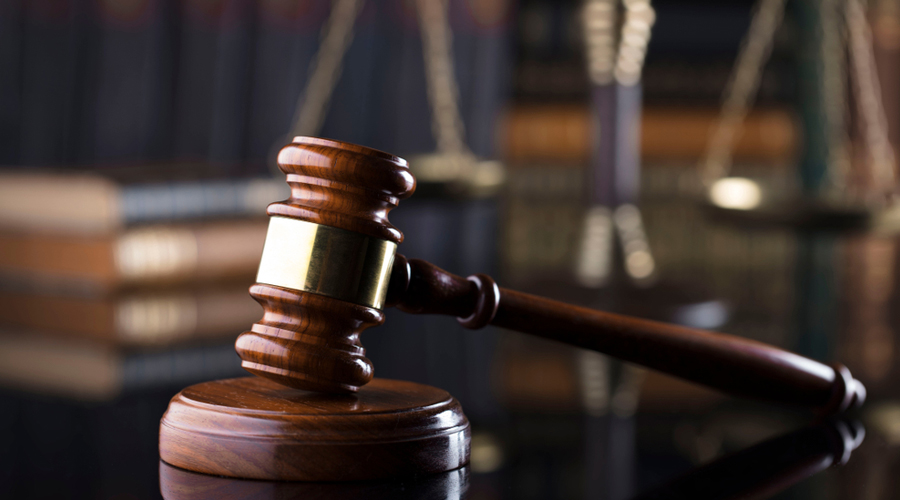The Bar Council of India on Friday informed the Supreme Court that it has convened a meeting of state bar councils and proposes to formulate rules for curtailing strikes by lawyers and initiating action against advocates who participate or instigate others for abstaining from work and strikes on social media.
A bench of Justices D Y Chandrachud and M R Shah was informed by senior advocate Manan Kumar Mishra, who is the chairman of the Bar Council of India (BCI), that they have convened a meeting of all State Bar Associations on September 4.
"We will be holding a meeting of all the state Bar Councils and Associations on September 4 and we propose to formulate rules to curtail strikes by lawyers and to initiate action against advocates who instigate strikes on social media, Mishra said.
The bench recorded the submission of Mishra and said that it appreciates the action taken by BCI.
On the request of Mishra, the top court posted the matter for further hearing in the third week of September.
At the outset, Mishra apologised for not coming up with suggestions earlier in compliance with the court's order last year, due to the onset of pandemic.
On July 26, the top court had said it had delivered its verdict on February 28 last year and the BCI and the state bar councils were directed to give concrete suggestions to deal with the problem of strikes and abstention from work by lawyers.
It had noted that no response has been received from BCI and other state associations. The top court had asked Mishra to render assistance to the court in his capacity as the chairperson of the Bar Council of India.
On February 28 last year, the top court was irked by lawyers holding strike every Saturday for 35 years in Uttarakhand district courts over reasons like 'bomb blast in Pakistan', 'earthquake in Nepal' or 'condolence references for family members' and had warned the advocates concerned of contempt action if they persisted with it.
Holding the strike illegal, the top court had sought response from BCI and all the State Bar Councils within six weeks to suggest the further course of action to deal with the problem of strikes/abstaining from work by the lawyers.
Taking suo motu cognisance of the issue, the top court had emphasised that at a time when the judiciary is facing serious problems of pendency and delay in disposal of cases, how can the institution as a whole can afford such four days strike in a month.
The top court had said that every month on 3-4 Saturdays, the advocates are on strike on one pretext or the other and added that had the lawyers worked on those days, it would have achieved the ultimate goal of speedy justice, which is now a fundamental right.
It had said that boycotting courts on every Saturday in the districts of Dehradun, Haridwar and Udham Singh Nagar in Uttarakhand is not justifiable at all and as such it tantamount to contempt of the courts.
The top court had dismissed the appeal filed by the Dehradun Bar Association challenging the Uttarakhand High Court order of September 25, 2019 which had asked the lawyers' and their associations to withdraw the strike in district courts and warned them of contempt action.
The top court had said that despite the law laid down in various verdicts of the apex court, the court had time and again deprecated the lawyers for going on strikes but it continued unabated.
"Even in the present case, the advocates have been boycotting the courts on all Saturdays, in the entire district of Dehradun, in several parts of the district of Haridwar and Udham Singh Nagar district of the State of Uttaranchal. Because of such strikes, the ultimate sufferers are the litigants," the top court had said.
It had noted the information sent by the High Court to the Law Commission with respect to the state for the years 2012- 2016, which showed that in Dehradun district, the advocates were on strike for 455 days (on an average 91 days per year) and in Haridwar district it was 515 days (about 103 days per year).
"To go on strike/boycott courts cannot be justified under the guise of the right to freedom of speech and expression under Article 19(1)(a) of the Constitution. Nobody has the right to go on strike/boycott courts. Even, such a right, if any, cannot affect the rights of others and more particularly, the right of Speedy Justice guaranteed under Articles 14 and 21 of the Constitution," it had said.
Referring to the Law Commission's report, the high court had noted that strikes by advocates or their abstinence from courts varied from local, national to international issues, having no relevance to the working of the courts, and were seldom for justifiable reasons.
"To mention a few, bomb blast in a Pakistan school, amendments to Sri Lanka's Constitution, inter-state river water disputes, attack on/murder of an advocate, earthquake in Nepal, condoling the death of near relatives of advocates, expressing solidarity to advocates of other state bar associations, moral support to movements by social activists, heavy rains....and even for kavi-sammelans," the high court had noted in its verdict.
In its verdict, the high court had noted that "genesis of this peculiar form" of protest of boycotting work on Saturdays for over 35 years was traceable to western Uttar Pradesh, of which the aforesaid districts formed part of, before the state of Uttarakhand was created on November 9, 2000.











